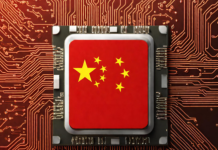As Apple gears up for the global launch of its much-anticipated Vision Pro mixed reality headsets, an interesting trend is unfolding in China. Tech enthusiasts, eager to get their hands on this latest gadget, are facing a unique challenge – the emergence of a grey market where prices are soaring.
Customers are willing to pay more than double the original price of the headset
In China, the Vision Pro has sparked a frenzy among buyers, with resellers seizing this opportunity to double the asking price. According to reports, eager customers are ready to shell out twice the official rate to secure this high-tech device. The original price range of $3,499 to $3,899, depending on the model, has been dwarfed by the grey market rates.

This trend is not entirely new. The practice, known as Daigou, involves agents traveling overseas to purchase luxury items, which are then sold back home at marked-up prices. While the pandemic had put a damper on this market, the easing of travel restrictions has seen a resurgence. With Apple’s new product launch, Daigou sellers are back in action, promising deliveries from the U.S. to China.
The Vision Pro is expected to make waves in the mixed reality sector, a domain where companies like Meta and Pico have previously ventured with limited success. Apple’s entry is seen as a game-changer, potentially revitalizing the market. Industry experts believe that this could be the turning point for VR/AR technologies, projecting a significant growth in headset shipments this year.
However, the industry has its challenges. For instance, Pico, a major VR brand, recently scaled back operations due to lower-than-expected sales. But with Apple stepping into the arena, the dynamics might just shift in favor of augmented and virtual reality technologies.
For Apple, this venture is more than just adding another product to its lineup; it’s about diversifying revenue streams. With the iPhone being a major revenue generator, the Vision Pro offers a new avenue, especially in tech-hungry markets like China.
RELATED:
- Apple Releases iOS 17.3 Update with Enhanced Security, Stolen Device Protection, and More
- Apple’s Future Unveiled with Upcoming Product and Software Launches
- Xiaomi 13 Ultra Premium Camera Phone is now only $799
- Best VR / AR Headsets of 2023 – Gizmochina
(Via)







